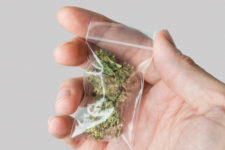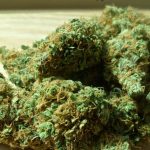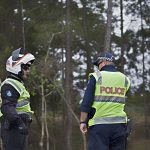What is the Cannabis Cautioning Scheme in New South Wales?

With Indigenous deaths in custody firmly in the spotlight across Australia, attention is also being drawn to the inherent racism present at every level of the Justice system, and now it has been revealed that New South Wales Police disproportionately pursue Indigenous people caught with cannabis through the courts unnecessarily.
Statistics compiled by the NSW Bureau of Crime Statistics and Research (BOCSAR) show that during the five year period 2013-2017, 82.55% of all Indigenous people found with a non-indictable quantity of cannabis were pursued through the courts, compared with only 52.29% for the non-Indigenous population.
This is an alternative option
This is despite the fact that police in New South Wales do have the option to use The Cannabis Cautioning Scheme for drug possession in small quantities (15 grams or less).
While the Scheme cannot apply to people who are found to be manufacturing or supplying cannabis, or to anyone with prior convictions for drug offences, or violent or sexual offences, and only two cautions can be given to any person, it does allow Police to use their discretion to issue a caution in other circumstances.
Giving a caution enables Police Officers to refer people to the Alcohol and Drug Information Service, rather than issuing them with a fine or pressing criminal charges for drug possession, and enables those who are given a caution to stay out of the criminal justice system. It also means less police resourcing and manpower is required to prepare court paperwork, or prepare statements and attend court if the person pleads not guilty.
A maximum of two cautions can be given to any one person, but since its introduction in New South Wales in the year 2000, the Scheme has been an important step forward in the way the criminal justice system treats small amounts drug possession, because it allows Police an alternative way to deal with drug users, recognising that simply arresting and bringing people before the courts can be time-consuming, and even counter-productive.
Few Indigenous people are cautioned
But the BOCSAR research also reveals that Police were four times more likely to issue cautions to non-Indigenous people. In the five years to 2017, only 11.41% of Indigenous Australians caught by police with small amounts of cannabis were issued cautions, compared with 40.03% of the non-Indigenous population.
And this can have devastating outcomes for Indigenous Australians, particularly young indigenous Australians. Study after study has shown that once they are forced into the criminal justice system, it is unlikely they will ever get out.
Racism in the courts
Court data also shows different treatment for Indigenous Australians. While Indigenous and non-Indigenous Australians had a similar conviction rate for cannabis possession charges, Indigenous Australians often received harsher sentences. Some other studies suggest that there is similarly disproportionate court action against Indigenous Australians for traffic offences such as driving unlicensed or driving unregistered.
And it’s not just a problem for New South Wales.
Data from Western Australia published earlier this year revealed Aboriginal drivers in Western Australia received 3.2 times more fines from being pulled over by police than non-Aboriginal drivers, but slightly fewer penalties from traffic cameras.
In Queensland, numbers show that Indigenous Australians, both adults and children, are dramatically over-represented in the enforcement of the state’s ‘public nuisance’ laws.
Both academic research and real life stories tell us that when young people can be successfully diverted away from the courts, they are much less likely to pursue further crime, and go on to get an education, training and a job. We also know that the fate for many Indigenous Australians who do fall on the wrong side of the law can be deadly.
Black Lives Matter
Around the nation in recent weeks tens of thousands of Australians have stood up for better outcomes for Indigenous people, protesting in support of Black Lives Matter. It has been clear for many years that there is systemic racism in both our police forces and our justice system, and that Indigenous Deaths in Custody still occur, when they could be prevented.
On the eve of the Sydney protests, video footage surfaced of the brutal arrest of an Indigenous teen in Sydney – a white police officer pinning his arms behind his back before kicking his legs out from underneath him, slamming him face down into a pathway. It has been reported that NSW police commissioner Mick Fuller dismissed the violent assault, as an officer having “a bad day.”
It has been more than 30 years since the Royal Commission into Indigenous Deaths in custody. And yet little has changed. Since then a further 432 indigenous people have died either in temporary police custody, or while serving prison time, and no officers have ever been charged over these deaths.







